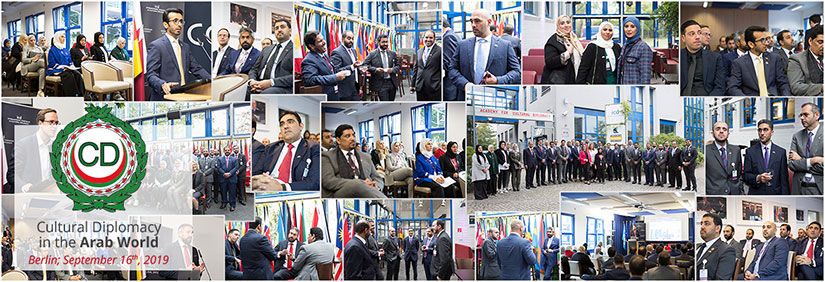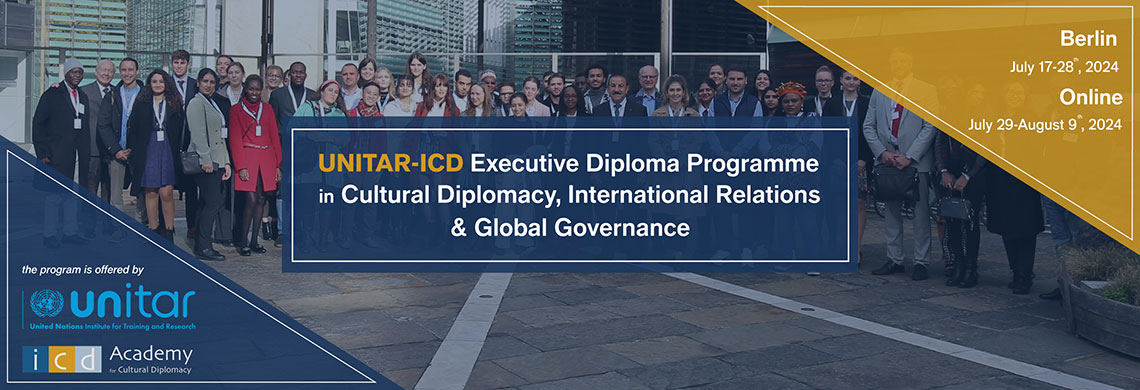Cultural Diplomacy in the Arab World
Qatar Leadership Center – Executive Leaders Program

Introduction to the field of cultural diplomacy and economic bridges: the relations between economics, politics and culture
The process of globalization has re-structured the rules of the contemporary economic system. The principles of bilateral and multilateral trade and investment have now changed in such a way that economic growth for example requires more than just financial exchange; It is now required diplomacy, cooperation, and cultural understanding in order to be successful.
As the 2008 global financial crisis has demonstrated, the global economy influences all areas of our lives. It is intimately connected to issues such as extreme poverty, development immigration and integration, healthcare, education, environmental issues, and culture & the arts. As such, discussion on the future of the global economy must incorporate perspectives from a diverse range of fields and groups, including politics, civil society, and multiple academic disciplines, such as history, sociology, philosophy and the arts.
In Addition, International know-how and experience is becoming ever-more important in our increasingly globalized world. Companies and Governments are expected to not only understand the central issues of Business Administration and Management, but to have a range of soft skills such as intercultural competence.
The new global economy of the twenty-first century has transformed the economic, social, educational and political landscape in a profound and indelible manner. It is composed of a trilogy of interactive forces that include globalization, trade liberalization and the information technology and communications revolution. Globalization has melted national borders; free trade has enhanced economic integration and the information and communications revolution has made geography and time irrelevant. The role and functions of entrepreneurship in the new global economy have taken on added significance and face compounded challenges.
The Institute for Cultural Diplomacy has therefore established the program "Economic Bridges" (ECOB) to promote stronger economic relations between nation states, and to examine the complex relationship between economics, politics and culture at the global level.
MODERATOR:
Dr. Jeremias Kettner is a leading German foreign policy expert with a focus on Europe's relations toward the Arabian Gulf. He is an advisor, regular speaker, guest lecturer, and commentator in international media.
As co-founder of BigSmallWorld, he interviews global leaders from politics and businesses. From 2011-2013 he co-chaired the Young German Council on Foreign Affairs and is an Alumni Global Shaper of the World Economic Forum. Jeremias holds a PhD in political sciences from the Freie Universität Berlin and is the founder of the consulting firm Kettner Advisory. He sits on various advisory boards. Currently he serves as the Deputy Director of the Arabic Cultural House, The Divan.
Agenda |
|
|---|---|
| 8:00 | Assembly at lobby |
8:15 |
Bus leaves to ICD |
9:00 |
Introduction to the week’s program |
9:30 |
Meeting Mark Donfried, founder and director of the ICD |
11:30 |
End of event / Bus leaves to restaurant |
12:15 |
Lunch at Restaurant in Berlin Mitte |
1:00 |
Bus leaves for ESMT (15 min) |
1:15 |
Prayer at ESMT |

























































